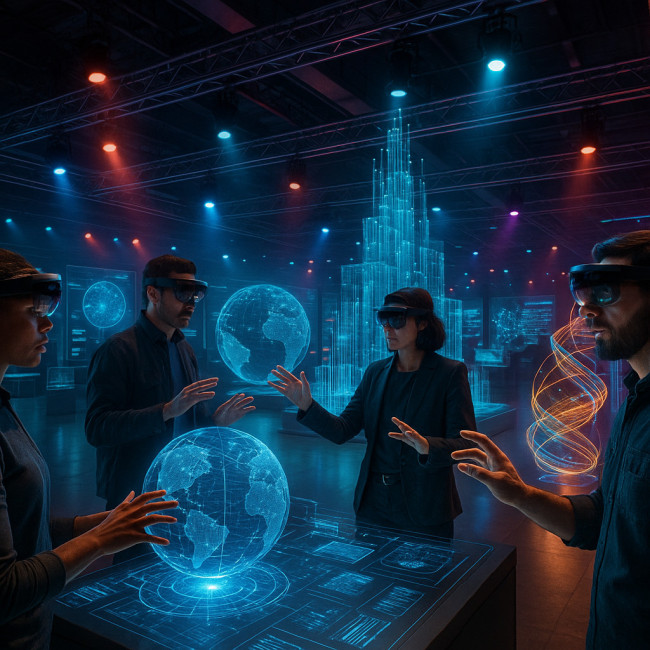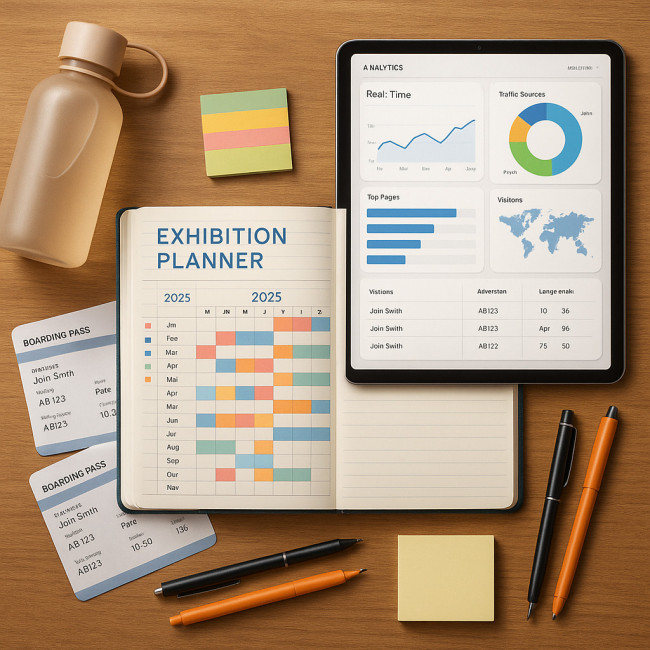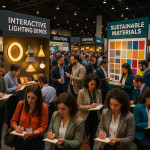Exhibition scenographer events: immersive tech demos you cannot miss in 2025
2025 is shaping up to be the most interactive year yet for exhibition scenographers. From AI-driven lighting rigs to haptic visitor journeys, dozens of events promise live demos that will reshape how you design spatial stories. This guide short-lists the must-see conferences, trade shows and pop-up labs so you can book travel, secure early-bird passes and return with an arsenal of fresh techniques.
Why 2025 is a turning point for exhibition scenographers

The pandemic backlog of postponed showcases, the arrival of consumer-grade mixed reality headsets and tighter sustainability directives all converge next year. Vendors are fast-tracking prototypes, meaning you will find production-ready tools—not just concept videos—on show floors. Missing these demos could leave your studio 18 months behind the innovation curve.
Key trends shaping the event calendar
- Sensor-rich environments – Lidar, UWB and thermal arrays unlock real-time visitor analytics.
- Cloud-native show control – Remote oversight of light, media and scent trails becomes standard.
- Eco-smart materials – Recyclable substrates and bio-based composites steal the spotlight.
- Inclusive design defaults – Multi-sensory cues and wayfinding for diverse abilities move from optional to required.
Top 7 immersive tech demo events you cannot miss
1. Spatial Futures Summit – Barcelona, 11-14 March 2025
Expect a three-day lab where volumetric capture studios let you scan a physical maquette and instantly convert it into a WebXR scene. The summit also hosts a “five-minute fail” stage where designers reveal tech mishaps and fixes, saving you from repeat errors.
- Star demo: AI-assisted pathfinding engine that predicts congested zones before opening day.
- Book early: The workshop cap is 30 participants, and seats sold out in 48 hours last year.
2. Light + Spatial – Frankfurt, 7-10 April 2025
This flagship lighting expo adds a mixed-reality hall where you can test DMX profiles inside an accurate physics simulation. Pair physical fixtures with digital twins to fine-tune colour temperature before you even sign the rental contract.
Make the most of your visit by reading lighting and audio coordination grids in advance; you will know which spec sheets to collect on-site.
3. XR World Congress – Seoul, 19-22 May 2025
Seoul's tech-forward infrastructure means 5G testbeds power ultra-low-latency demos. Try the “avatar co-presence” module that lets remote curators walk the show floor through a telepresence proxy. The feature integrates natively with the VR pre-visualisation pipelines most teams already use.
4. Materiality Now – Rotterdam, 4-6 June 2025
Rotterdam's port labs unveil biodegradable panels that rival MDF in load capacity but compost in six months. A dedicated testing zone lets you drill, paint and heat the panels live. For pre-event prep, skim the eco-smart materials roadmap so you can compare suppliers with a checklist in hand.
5. Data-Driven Design Expo – Chicago, 15-17 July 2025
This mid-summer show focuses on metrics. Witness ceiling-mounted sensor grids that feed live visitor flow heatmaps into your BIM files. A hackathon challenges teams to boost engagement by 20 % using only layout tweaks—perfect practice for the visitor-flow analytics strategies you plan to deploy.
6. Inclusive Immersion Forum – Sydney, 2-4 September 2025
The forum pairs accessibility advocates with tech vendors to co-create multi-sensory experiences. Try gloves that translate ultrasonic beacons into micro-vibrations or test a screen-reader-ready AR overlay. Brush up on inclusive design principles before you board the plane so you can ask better questions.
7. Pop-Up Prototype Week – Montreal, 10-14 November 2025
Montreal's creative economy funds a city-wide “prototype crawl.” Fabrication studios open doors for one-day sprints where scenographers partner with engineers to build proof-of-concepts. A final demo night awards micro-grants for ideas showing cost-cutting potential.
- Pro tip: Bring your crystal-clear briefs template to fast-track collaboration with strangers.
Budget and time-management cheat sheet
| Event | Early-bird fee (€) | Travel intensity* | Ideal attendee profile |
|---|---|---|---|
| Spatial Futures Summit | 890 | Medium (EU rail) | Concept & pre-viz leads |
| Light + Spatial | 540 | Low | Lighting programmers |
| XR World Congress | 1 250 | High (inter-continental) | Digital twin teams |
| Materiality Now | 390 | Low | Fabrication managers |
| Data-Driven Design Expo | 610 | Medium | Analytics specialists |
| Inclusive Immersion Forum | 720 | High | Accessibility officers |
| Pop-Up Prototype Week | Free (grant) | Medium | Experimental studios |
*Travel intensity considers average carbon output and jet-lag risk.
Maximise ROI before, during and after each event

Whether you are mapping a single afternoon of vendor demos or juggling a week-long itinerary that spans workshops, networking breakfasts and late-night prototype labs, the real return on investment hinges on disciplined preparation, on-site triage and structured knowledge sharing afterward. Define learning objectives for each colleague, arrange cloud folders for immediate media uploads, and pre-schedule debriefs so insights do not fade during the flight home. By treating every conference as a live research sprint instead of a passive lecture marathon, you transform badge scans and swag bags into billable innovation within days of returning to the studio.
Before you go
- Block calendar time for real-time learning summaries; reflection beats note-hoarding.
- Pre-book demo slots via vendor apps; queues waste precious floor hours.
- Publish a “looking for” post on a curated directory of spatial designers to attract meet-ups with peers.
On site
- Record vendor talks with a lapel mic (check consent) to generate instant team briefings.
- Collect small material samples; customs rarely flags items under 100 g.
- Test cross-compatibility: load your own OBJ files or light scenes into demo gear.
After you return
- Host a 30-minute “show & tell” inside your studio; focus on one actionable insight per department.
- Update your spec library; log new sustainable materials with supplier contacts.
- Brief clients on fresh capabilities to upsell upcoming projects.
FAQ
- Which event is best for tight budgets?
- Materiality Now costs under €400 and often offers travel bursaries for first-time attendees.
- Can I attend virtually?
- Light + Spatial and Data-Driven Design Expo stream keynote sessions, but hands-on demos remain in-person only.
- How early should I apply to speak?
- Most call-for-papers close six months prior; submit abstracts by the end of 2024 to secure a slot.
- Will language be a barrier?
- All seven events provide English tracks; XR World Congress also features live AI captioning.
Mini-quiz: Are you event-ready?
Next steps
Block out your calendar now and set up travel alerts. The earlier you register, the more likely you are to secure hands-on lab slots and early-bird savings. Your future projects—and clients—will thank you.
Ready to level up? Compare your current toolkit with the innovations listed above and draft an action plan this week.











